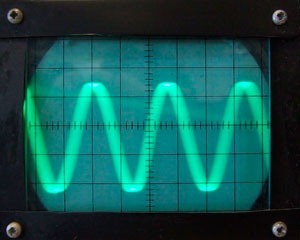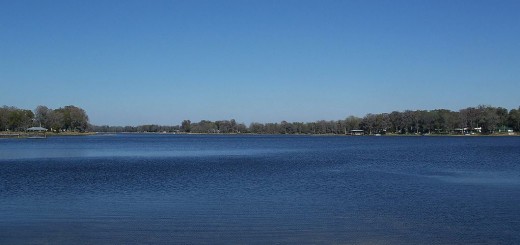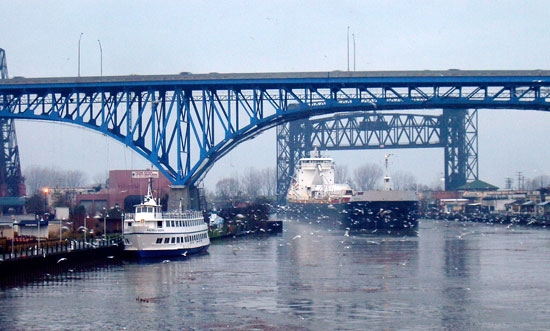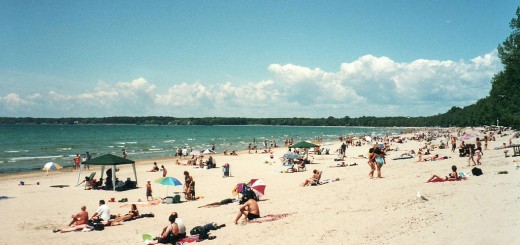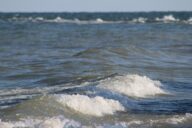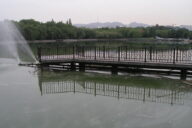Lake Okeechobee Meets The Ocean
0Thanks to the slow pace of Everglades restoration projects and more than 11 inches of El Niño rains, conditions have been perfect in recent weeks for releasing water from Florida’s Lake Okeechobee into the St. Lucie and Caloosahatchee Rivers downstream. This has created a startling scene along the state’s coastline as freshwater from Okeechobee flows into the salty Atlantic Ocean.
Of course it’s not every day that a lake meets an ocean, and the effects have been visually striking. And it might be OK if that’s how far the impacts reached. But given the large differences between the two bodies of water and the ecosystems that depend on each, most concerns by local officials are assuming negative outcomes for marine life like oyster beds and sea grasses.
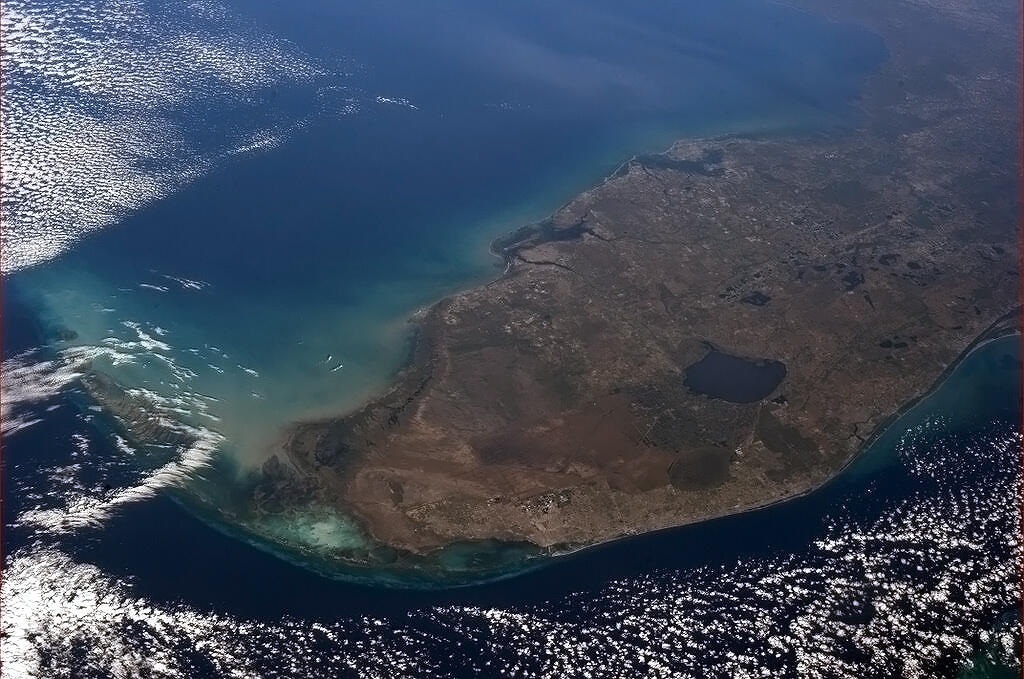
Lake Okeechobee, in the middle of Florida, seen from the International Space Station. (Credit: NASA / Public Domain)
This is because of the sheer volume of freshwater pulsating into the rivers and the Atlantic. In years past, water releases from Lake Okeechobee have been low enough that the salinity of the ocean can kill off any bacteria that are transported. But this year, there is likely enough freshwater to dilute the saltwater and cancel out this effect.
In addition, the sediment-rich waters are blocking out sunlight penetration and robbing coral reefs and the algae that live on them of the ability to photosynthesize:
649211.SLR 1 from Newswise on Vimeo.
But the trade-off to these impacts is that the risk of flooding for residents of the area is minimized, something that has to be done.
In recent days, the U.S. Army Corps of Engineers has reduced the releases going to the west to 4,000 cubic feet per second and those to the east to 1,800 cubic feet per second. These moves came after the lake levels dropped to just below 16 feet above sea level and there is hope that the release reductions can continue.
To possibly avoid future negative impacts from Lake Okeechobee releases, lawmakers are pushing for more funding to spur the completion of Everglades restoration projects. Once wrapped up, these could provide more wetland areas that could better buffer the impacts of unexpected rains and flooding.
Is it more important to protect aquatic life in the Atlantic Ocean or protect Florida residents from flooding? Do you have strong opinions either way? What sort of restoration actions are needed to move past this issue in the future? Please consider leaving a comment to share your thoughts!




